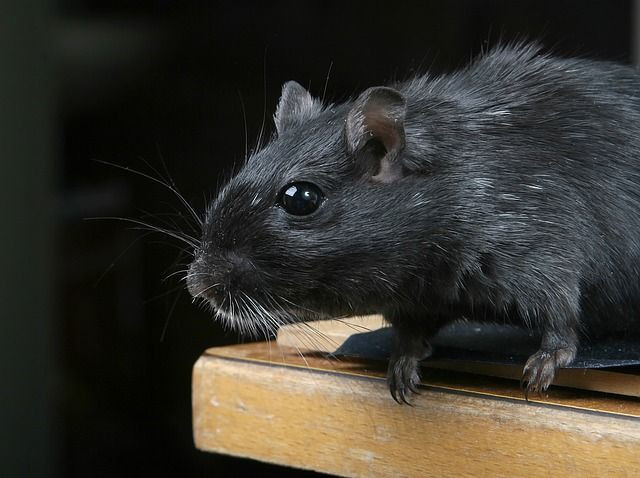Experimental Antibiotic Targets Staph Without Damaging Good Gut Bacteria In Mice

An experimental antibiotic that’s shown promise in fighting off superbugs can work its magic without directing much friendly fire against our good bacteria, suggests new research published Monday in the journal Antimicrobial Agents and Chemotherapy.
The study authors, hailing primarily from the St. Jude Children’s Research Hospital in Memphis, Tenn., dosed groups of healthy mice with a wide array of commonly prescribed oral antibiotics as well as the experimental drug, Debio 1452, for 10 days straight. After the treatment, they tested the feces of the mice, finding that the group given the medicine had minimal changes to their gut bacterial environment, or microbiome, compared to those given conventional antibiotics. While drugs like amoxicillin caused a 4,000-fold drop in the amount of gut bacteria present during treatment, the level of abundance and diversity in the gut remained nearly unchanged for the Debio 1452 mice and quickly returned to normal after treatment stopped.
“These results illustrate that a pathogen-selective approach to antibiotic development will minimize disturbance to the gut microbiome,” the researchers wrote.
Debio 1452 has been in the pipeline since at least 2007, having been first developed by Affinium Pharmaceuticals under the name AFN-1252. In 2014, the Swiss-based Debiopharm group bought out Affinium, and along came the rechristened Debio 1452.
The drug inhibits an enzyme commonly found in bacteria called enoyl-acyl carrier protein reductase, though very selectably. While the enzyme comes in several different flavors, Debio 1452 only inhibits one form, called FabI. Most bacteria that produce the enzyme, which helps them make fatty acids, can do so in a variety of ways, but staphylococcal bacteria like Staphylococcus aureus only use the FabI version.
Because of that pickiness, scientists have theorized that Fabl inhibitors like Debio 1452 could launch a surgical strike against troublesome staph infections without rocking the boat and causing further antibiotic resistance. Even without resistance in the picture, it’s also known that using less precise broad spectrum antibiotics often imbalance the microbiome by causing splash damage to our body’s good bacteria, leading to common side effects like diarrhea. Their use, especially early on in life, may possibly contribute to the development of chronic diseases like asthma and diabetes.
But while Debio 1452 has had some early success — killing even multidrug-resistant staph in the lab and in people with minimal side effects — the current study is the first to directly examine its aiming skill.
The Debio 1452 mice did experience one substantial change to their microbiome: a significant decrease in a family of bacteria called S24-7. However, while S24-7 bacteria did make up a good chunk of the gut microbiome in the mice, 30 to 50 percent, the rest of the bacteria quickly compensated for the imbalance and overall bacterial diversity and abundance wasn’t damaged during treatment. Two days after treatment, S24-7 levels bounced back. Conversely, the guts of the other mice took longer, as many as 37 days, to return to normal.
Of course, as the researchers admit, applying microbiome studies in mice to people isn’t an exact science. For one, the mice are given doses that are much higher than a typical human dose, meaning the antibiotics’ influence on the gut might be overstated. On the other hand, although S24-7 bacteria aren’t found in human guts, there are other species living inside us that Debio 1452 could potentially burn. Figuring out these specifics will take more research, especially with human subjects.
Still, the researchers are hopeful about the role targeted antibiotics like Debio 1452 will play in our everlasting arms race against bad bacterial bugs, one that will surely require the help of our microbial allies.
“Developing therapeutic strategies that minimize disturbances to the beneficial microbiome bacteria will become a more important criterion in antibiotic drug design in light of the emerging understanding of how the gut microbiome supports health by facilitating digestion, shielding us from invading microorganisms, and providing vitamins,” they wrote.
Source: Yao J, Carter R, Vuagniaux G, et al. A Pathogen-Selective Antibiotic Minimizes Disturbance to the Microbiome. Antimicrobial Agents and Chemotherapy. 2016.



























